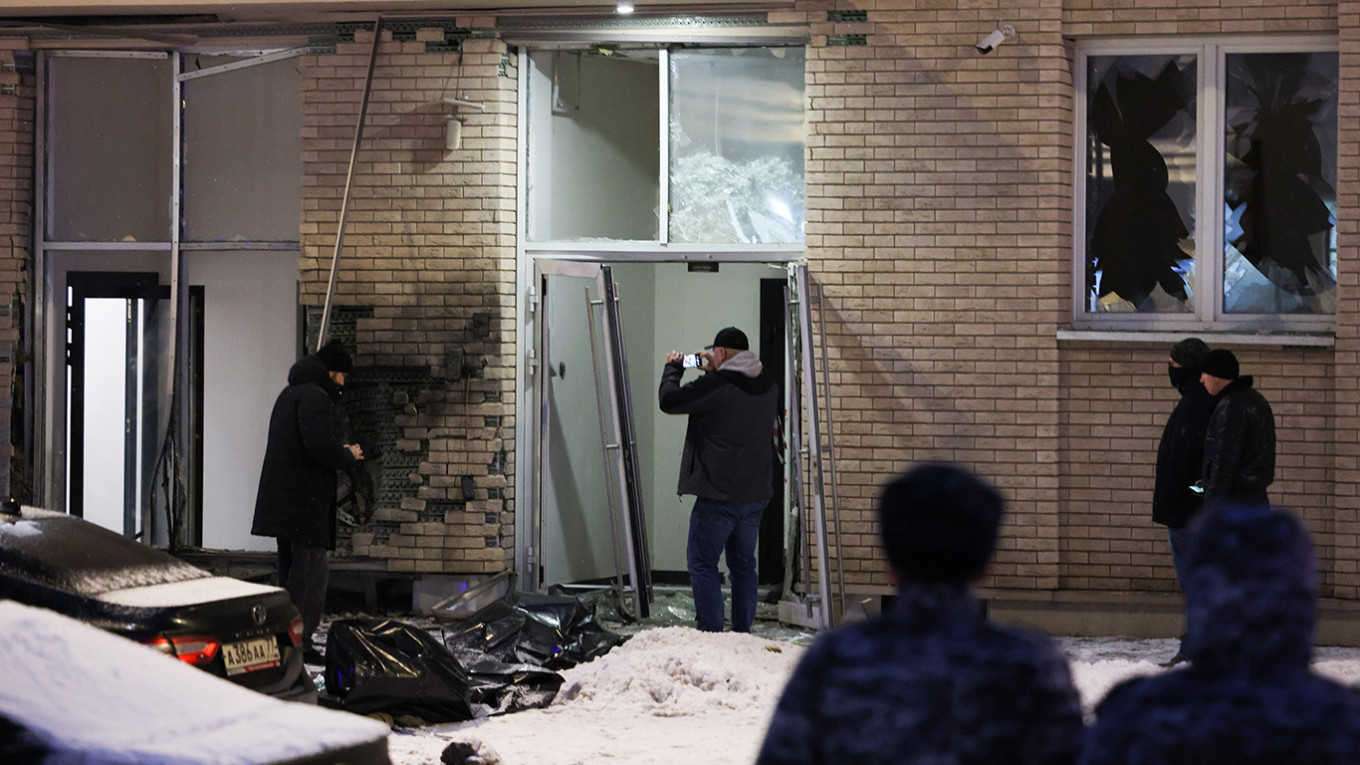 Aftermath of the bomb attack that killed General Igor Kirillov.
Mikhail Metzel / TASS
Aftermath of the bomb attack that killed General Igor Kirillov.
Mikhail Metzel / TASS
The head of the Russian army's chemical weapons division was killed Tuesday in a blast outside an apartment building in Moscow, becoming the highest-ranking military official to be killed in such a blast during the Kremlin’s full-scale invasion.
Sources in Ukraine's SBU security service told news agencies that it was behind the early morning explosion in what it called a “special operation,” calling Igor Kirillov a "war criminal."
Here’s a list of some of the Russian pro-war figures and Ukrainian officials who switched sides after the invasion who have been killed in assassination attacks:
Daria Dugina
Daria Dugina, the 29-year-old daughter of Russian ideologue Alexander Dugin, was killed in August 2022 when an explosive device detonated on the Toyota Land Cruiser she was driving.
Russia’s Federal Security Service (FSB) pointed the finger at Ukraine and said the person responsible was a Ukrainian woman born in 1979 who had rented an apartment in the same building where Dugina lived. Kyiv neither confirmed nor denied a role in the car bombing.
Dugin, 62, is an outspoken Russian ultranationalist intellectual who enthusiastically backs Russia's invasion of Ukraine, as did his daughter. Russian media reports suggested Dugina had borrowed her father's car at the last minute.
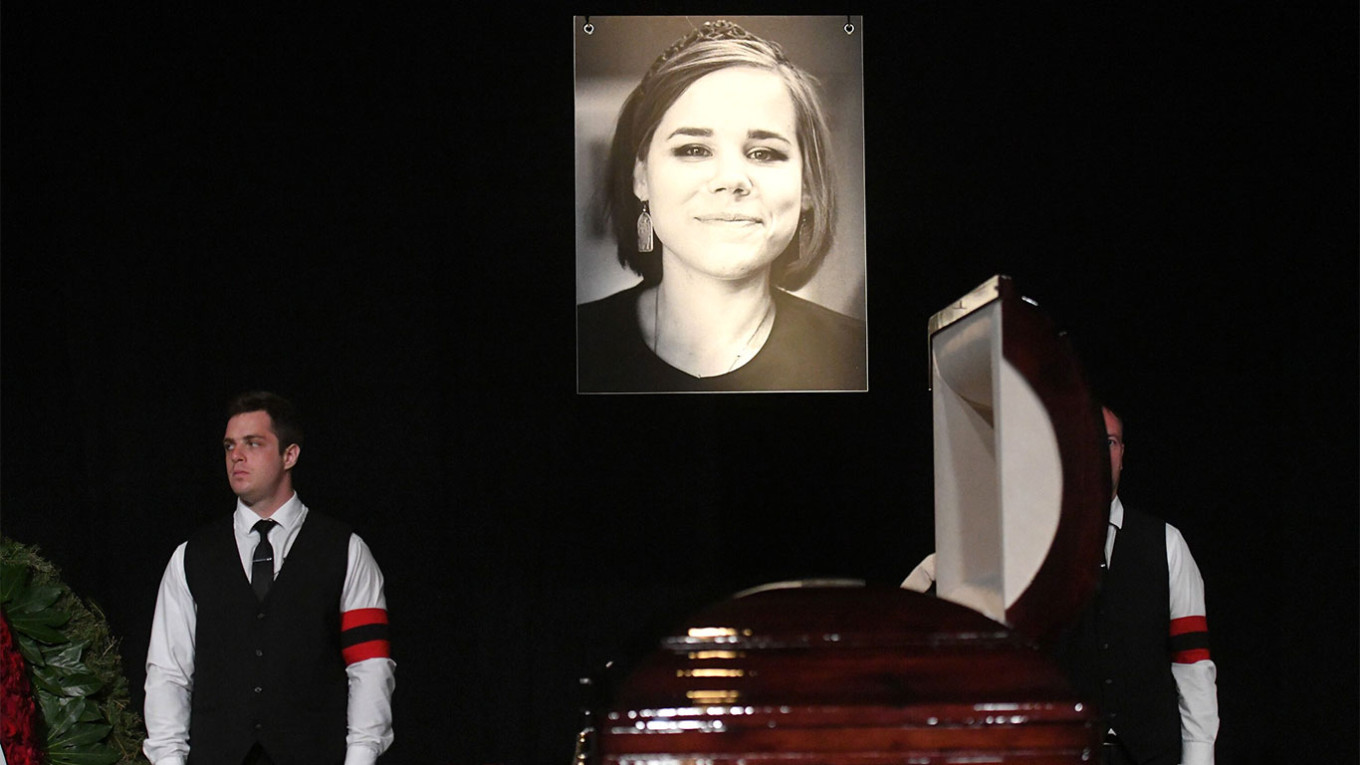 Farewell ceremony for Daria Dugina.
Anton Velikzhanin / Moskva 24 / Moskva News Agency
Farewell ceremony for Daria Dugina.
Anton Velikzhanin / Moskva 24 / Moskva News Agency
Vladlen Tatarsky
Russian military blogger Vladlen Tatarsky, 40, died when a statue handed to him as a gift exploded in a St. Petersburg cafe where he was giving a speech in April 2023.
Tatarsky, whose real name was Maxim Fomin, was an enthusiastic supporter of the invasion of Ukraine but was also critical of the Russian military.
Daria Trepova, 27, who gave Tatarsky the golden figurine of himself, was found guilty of terrorism and other charges over the attack and sentenced to 27 years in a prison colony. It is the longest sentence Russia has handed to a woman since the Soviet collapse, according to state media and rights groups.
Russian investigators claimed Trepova acted on the instructions of individuals located in Ukraine. Trepova denied purposefully killing Tatarsky.
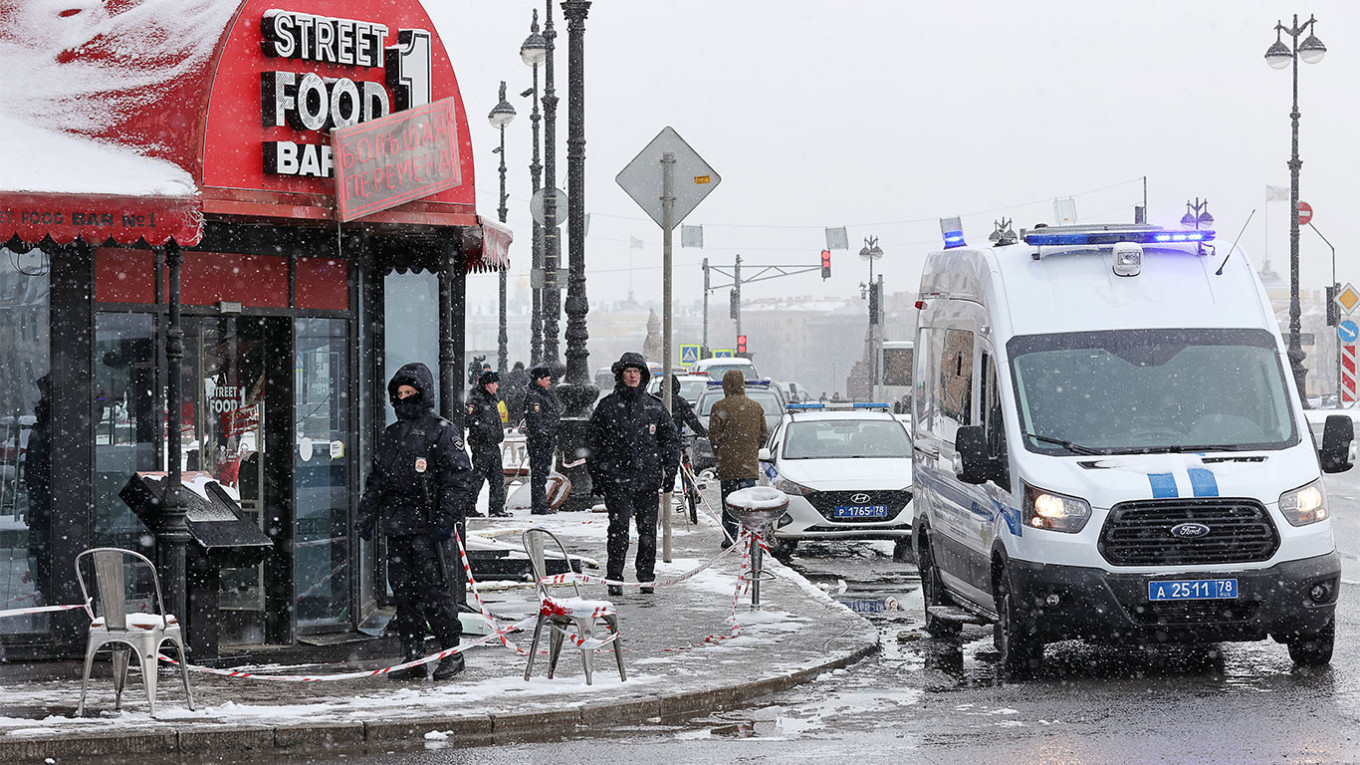 The Strit-Bar cafe on Universitetskaya Embankment in St. Petersburg, where Vladlen Tatarsky was killed.
Alexander Demianchuk / TASS
The Strit-Bar cafe on Universitetskaya Embankment in St. Petersburg, where Vladlen Tatarsky was killed.
Alexander Demianchuk / TASS
Alexei Kovalev
Kovalev, a former Ukrainian deputy who switched allegiance to Russian occupying forces in the southern region of Kherson, was shot dead in August 2022.
Kovalev, 33, was elected a deputy in 2019 in Kherson and joined President Volodymyr Zelensky's party in the Ukrainian parliament.
After the full-scale Russian invasion of Ukraine, Kovalev joined the invading forces and became a senior official.
Some media suggested he might have been killed for working with Russia.
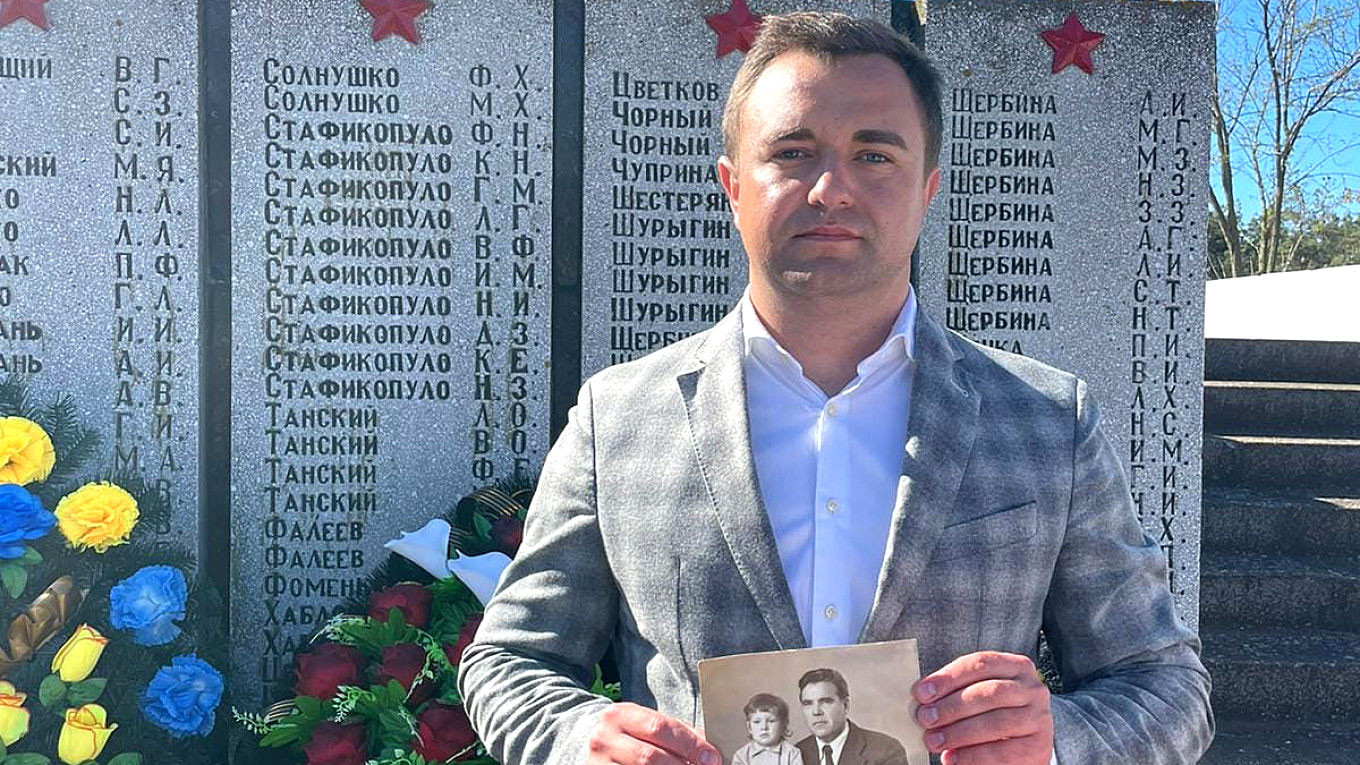 Alexei Kovalev.
Alexei Kovalev / Facebook
Alexei Kovalev.
Alexei Kovalev / Facebook
Vitaly Gura
Vitaly Gura, a member of Russia’s occupying administration in Ukraine’s Kherson region died in an assassination attempt in August 2022.
Unknown assailants opened fire on Gura near his home in the occupied city of Nova Kakhovka.
Gura was taken to the hospital with multiple gunshot wounds and died during a transfer to another hospital in the occupied Crimean peninsula.
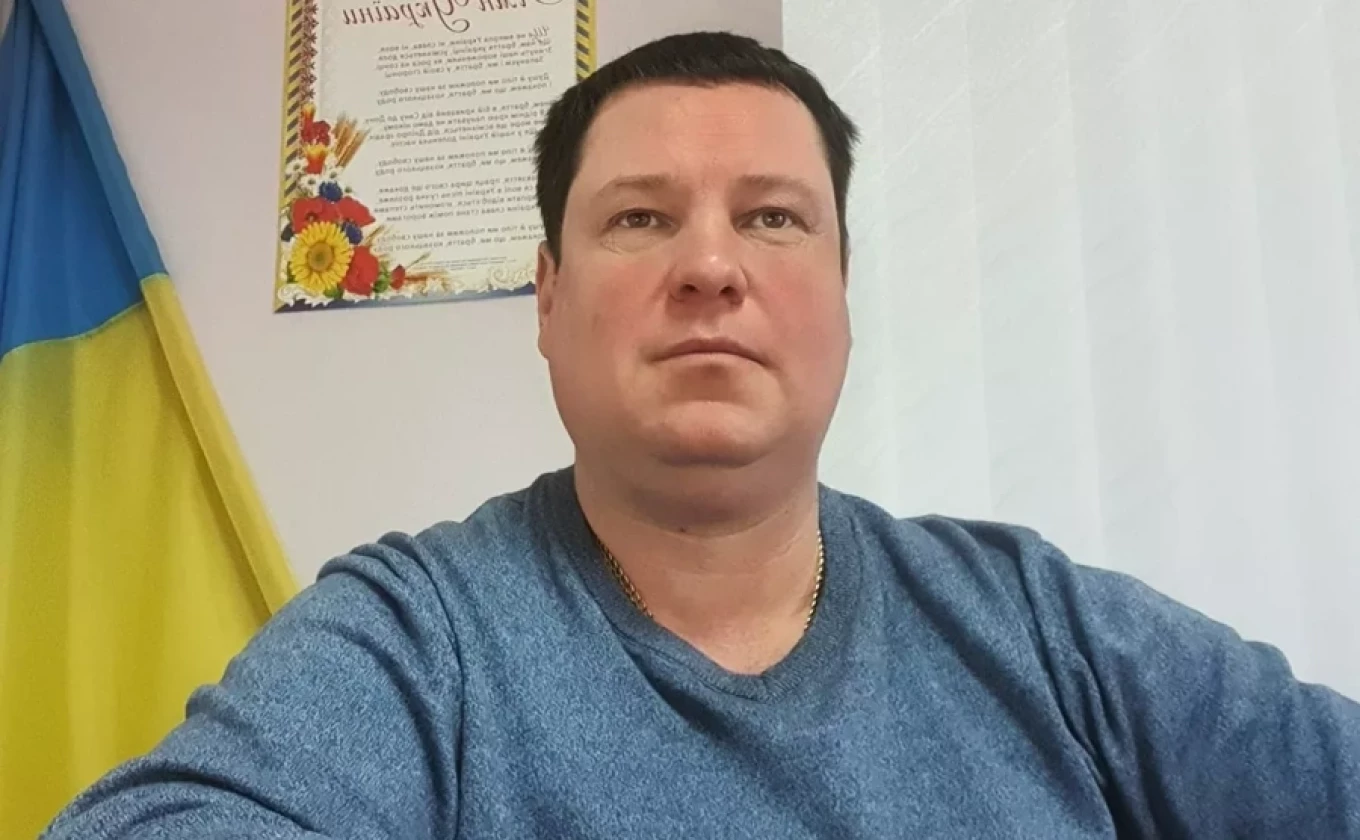 Vitaly Gura.
Social media
Vitaly Gura.
Social media
AFP contributed reporting.
A Message from The Moscow Times:
Dear readers,
We are facing unprecedented challenges. Russia's Prosecutor General's Office has designated The Moscow Times as an "undesirable" organization, criminalizing our work and putting our staff at risk of prosecution. This follows our earlier unjust labeling as a "foreign agent."
These actions are direct attempts to silence independent journalism in Russia. The authorities claim our work "discredits the decisions of the Russian leadership." We see things differently: we strive to provide accurate, unbiased reporting on Russia.
We, the journalists of The Moscow Times, refuse to be silenced. But to continue our work, we need your help.
Your support, no matter how small, makes a world of difference. If you can, please support us monthly starting from just $2. It's quick to set up, and every contribution makes a significant impact.
By supporting The Moscow Times, you're defending open, independent journalism in the face of repression. Thank you for standing with us.
Continue
![]()
Not ready to support today?
Remind me later.
.png)
 6 days ago
2
6 days ago
2
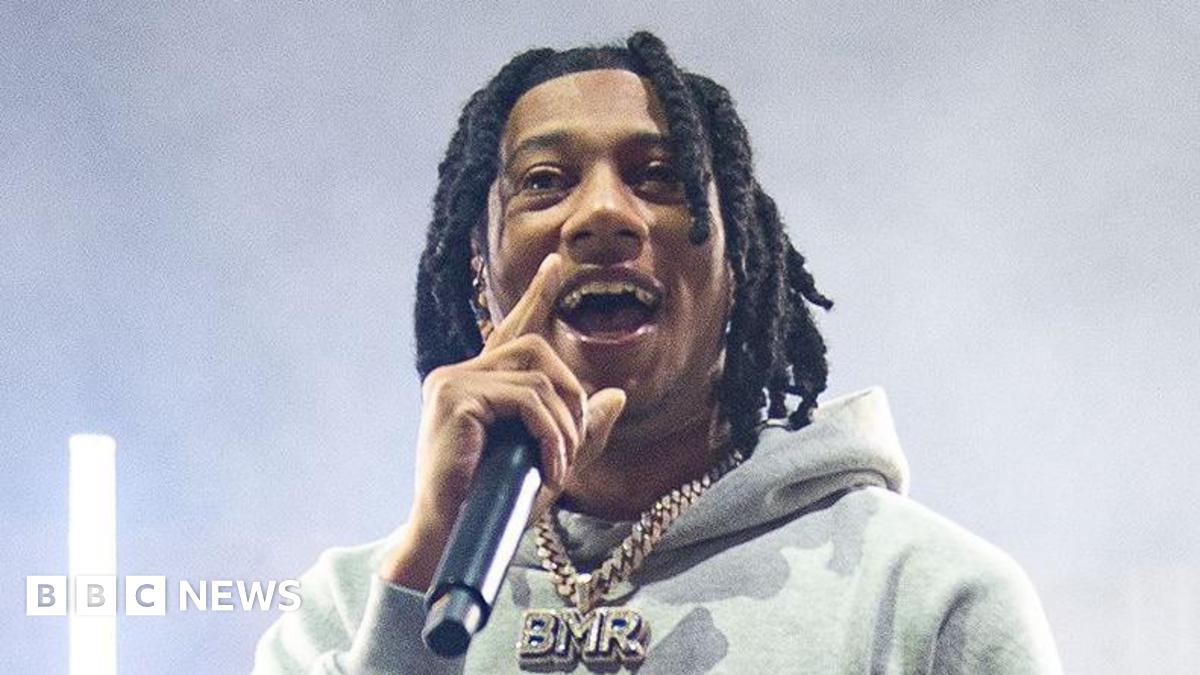
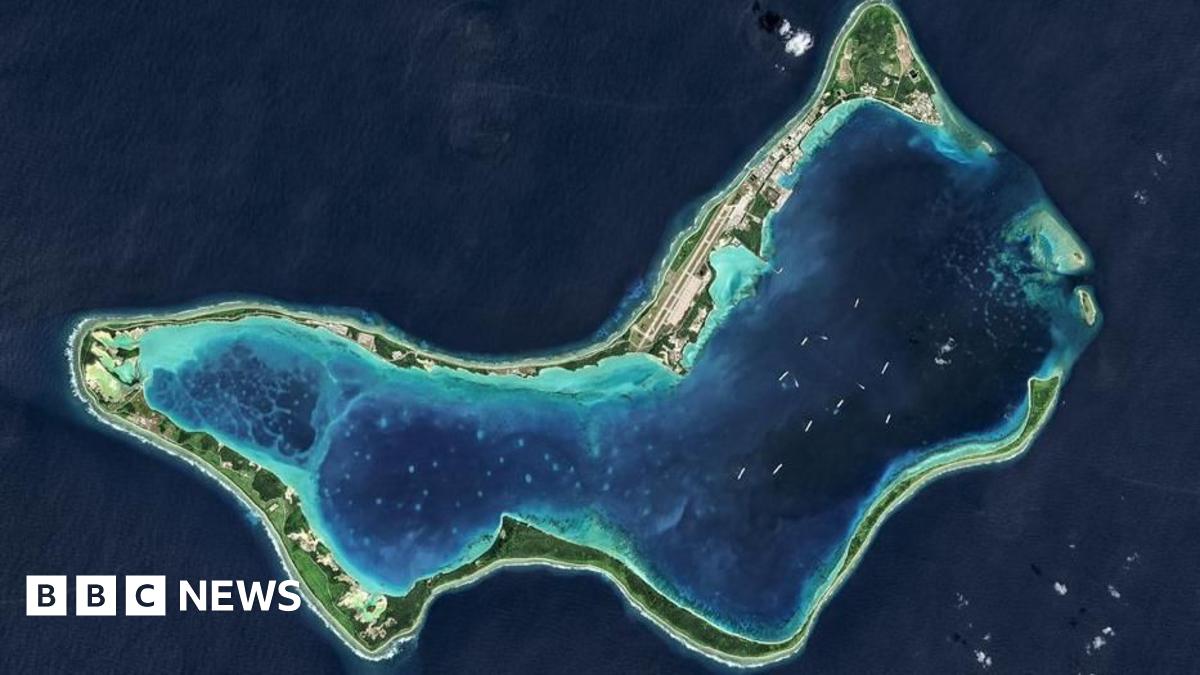
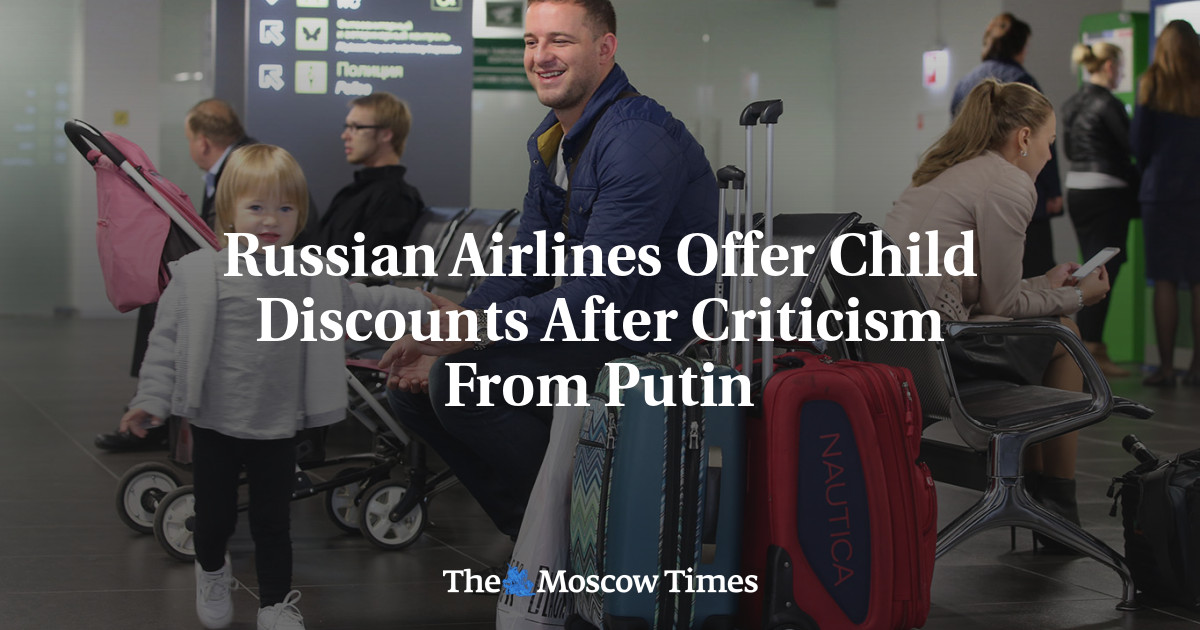
/cdn.vox-cdn.com/uploads/chorus_asset/file/25515570/minesweeper_netflix_screenshot.jpg)




 English (US) ·
English (US) ·